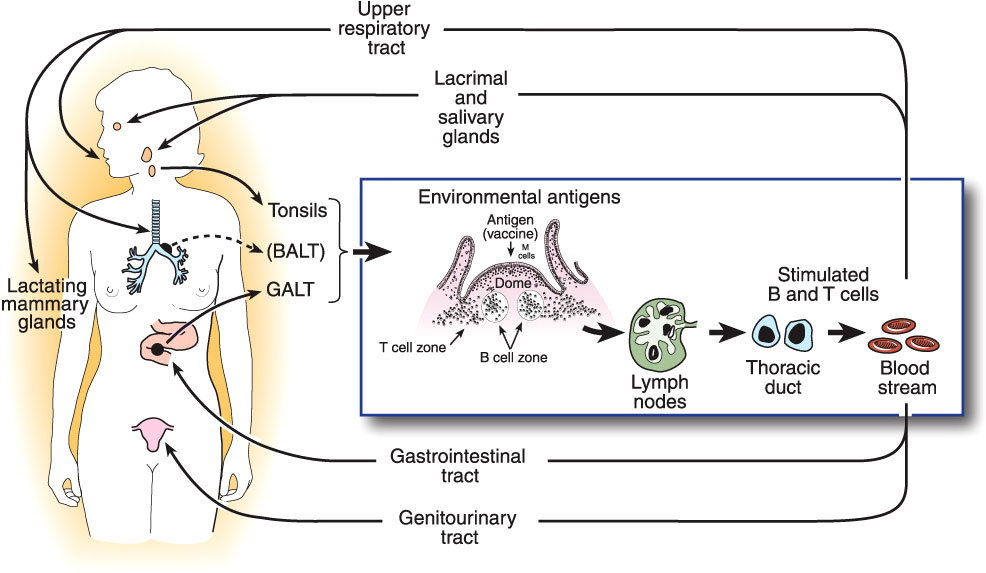バッファロー大学の科学者が共著した論文では、なぜ鼻腔内ワクチンが最終的にパンデミックを抑制する鍵となるのかが説明されています。 A paper co-authored by a University at Buffalo scientist explains why an intranasal vaccine is key to ultimately controlling the pandemic
2022-09-13 バッファロー大学(UB)
その理由は、COVID-19に対する最も強力な免疫が、上気道や口腔内で起こる感染の結果として生まれ、免疫グロブリンA(IgA)抗体の分泌を通じて粘膜免疫を生じさせるからだ。
COVID-19に対する抗体反応はほとんど血清に集中しているにもかかわらず、血中を循環している抗体レベルは粘膜分泌物の抗体レベルを反映していないことが判明した。
<関連情報>
- https://www.buffalo.edu/news/releases/2022/09/012.html
- https://www.frontiersin.org/articles/10.3389/fimmu.2022.957107/full
粘膜免疫:SARS-CoV-2の感染と伝播を理解するためのミッシングリンク Mucosal immunity: The missing link in comprehending SARS-CoV-2 infection and transmission
Michael W. Russell and Jiri Mestecky
Frontiers in Immunology Published: 17 August 2022
.DOI:https://doi.org/10.3389/fimmu.2022.957107

SARS-CoV-2 is primarily an airborne infection of the upper respiratory tract, which on reaching the lungs causes the severe acute respiratory disease, COVID-19. Its first contact with the immune system, likely through the nasal passages and Waldeyer’s ring of tonsils and adenoids, induces mucosal immune responses revealed by the production of secretory IgA (SIgA) antibodies in saliva, nasal fluid, tears, and other secretions within 4 days of infection. Evidence is accumulating that these responses might limit the virus to the upper respiratory tract resulting in asymptomatic infection or only mild disease. The injectable systemic vaccines that have been successfully developed to prevent serious disease and its consequences do not induce antibodies in mucosal secretions of naïve subjects, but they may recall SIgA antibody responses in secretions of previously infected subjects, thereby helping to explain enhanced resistance to repeated (breakthrough) infection. While many intranasally administered COVID vaccines have been found to induce potentially protective immune responses in experimental animals such as mice, few have demonstrated similar success in humans. Intranasal vaccines should have advantage over injectable vaccines in inducing SIgA antibodies in upper respiratory and oral secretions that would not only prevent initial acquisition of the virus, but also suppress community spread via aerosols and droplets generated from these secretions.


